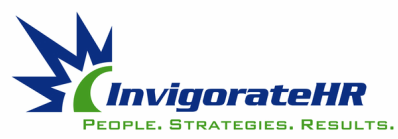|
In the modern workplace, the traditional 9-to-5 model is rapidly becoming a relic of the past. Flexible schedules have emerged as a transformative approach that benefits both employees and employers, reshaping how we conceptualize work and productivity.
The Human Side of Flexibility For employees, flexible scheduling represents far more than a convenient option—it's a lifeline to balanced living. Imagine a working parent who can adjust their hours to attend a child's school event, or a creative professional who discovers their most productive hours are outside the traditional workday. This approach acknowledges that people are not machines, but complex individuals with unique rhythms and responsibilities. The psychological impact is profound. When employees feel trusted to manage their own time, they experience increased job satisfaction and reduced stress. This trust translates directly into motivation, with workers more likely to go above and beyond when their employer respects their individual needs. Companies that embrace flexibility often see a remarkable transformation in workplace culture—from a rigid, clock-watching environment to a dynamic, results-oriented ecosystem. As the year-end approaches, businesses and organizations often look to celebrate the holiday season. However, creating truly inclusive celebrations requires thoughtful planning and consideration. This blog post offers practical advice for both workplace events and marketing campaigns to ensure your holiday efforts resonate with diverse audiences. Understanding the Diverse Holiday Landscape
The holiday season means different things to different people. From Diwali and Hanukkah to Christmas and Kwanzaa, various cultures and religions celebrate significant dates during this time. Recognizing this diversity is the first step towards inclusivity. Do:
Don't:
Planning Inclusive Workplace Celebrations Creating an inclusive holiday celebration in the workplace requires careful consideration and planning. Do:
Don't:
In today's ever-evolving professional landscape, organizations are increasingly recognizing the importance of creating a workplace culture that puts people at the center. A people-centric culture not only leads to happier, more engaged employees but also drives better business outcomes. Understanding People-Centric Culture
A people-centric culture is one that prioritizes the needs, well-being, and growth of employees. It goes beyond viewing employees as mere resources and instead recognizes them as valuable individuals who contribute to the organization's success. This approach fosters an environment where employees feel valued, supported, and empowered. At the heart of this approach lies employee voice and empowerment. A truly people-centric organization encourages open communication and feedback, actively involving employees in decision-making processes. By creating channels for sharing ideas and innovations, companies can tap into the collective wisdom of their workforce, fostering a culture of collaboration and continuous improvement. As the workforce continues to diversify, it’s essential that organizations take intentional steps to support all employees, particularly those from underrepresented backgrounds. Latinx and Hispanic employees make up a significant portion of the workforce, and their contributions are invaluable. However, like many minority groups, they often face unique challenges that can impact their career growth and overall experience in the workplace. As HR professionals, we have the responsibility to create an inclusive environment that not only recognizes but also actively supports the success of Latinx and Hispanic employees. Here are some strategic actions we can take to ensure equity and inclusion for this vital group.
The COVID-19 pandemic catalyzed a seismic shift in the world of work, sparking what we now call the "Great Reshuffle." This isn't just another buzzword; it's a fundamental reimagining of the employer-employee relationship that demands our attention and action. Between March and July 2021 alone, a staggering 19 million Americans quit their jobs. This mass exodus, goes beyond the usual job-hopping we see in a strong economy. It's a profound reevaluation of personal and professional priorities, sparked by pandemic-era introspection. We're witnessing a historic transfer of power from employers to employees. Today's professionals, armed with new perspectives on work-life integration, are demanding more from their careers. Gone are the days when competitive salaries and office perks were enough to retain top talent. |
Archives
December 2024
|





 RSS Feed
RSS Feed